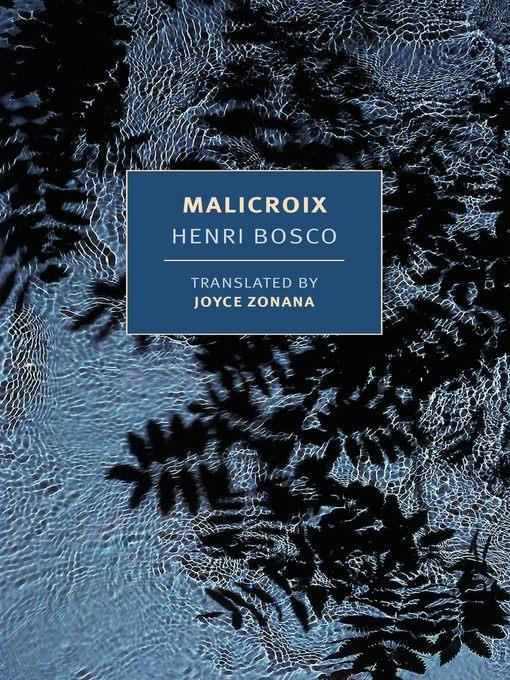
Malicroix
کتاب های مرتبط
- اطلاعات
- نقد و بررسی
- دیدگاه کاربران
نقد و بررسی

December 15, 2019
A young man travels to a remote island to claim his inheritance. Martial Mégremut can trace his heritage to two families: the gentle, even placid Mégremuts, whose name he bears, and the mysteriously wild Malicroix. When he hears that his great uncle, Cornélius de Malicroix, whom he has never met, has not only died, but also left him a small inheritance, he is intrigued: This Malicroix lived for more than a decade on a small island in the Rhône, with little human contact. Martial goes to the island, where he finds Balandran, a rough shepherd who served Malicroix, and Dromiols, an oddly hostile notary who has settled Malicroix's accounts. Dromiols informs Martial that in order to keep the inheritance, he must stay on the island, without leaving, for three months. His ensuing stay makes up the bulk of this novel by Bosco, a writer long revered in his native France and who died in 1976. Bosco was nominated four times for the Nobel Prize in literature; this is widely regarded as his magnum opus. It is a slow and quiet novel given to long descriptions of wind and rain and the Rhône. Bosco never uses one word when, as the saying goes, he could use 20. Martial hasn't brought so much as a book to occupy himself. He sinks into his solitary thought. "Everything around me was silent," he says. "Nothing suggests unlimited space like silence. I entered that space. Sounds color an expanse and endow it with a kind of sonorous body." And so on. After a while, Martial's dreams become indistinguishable from his waking life. There seem to be other figures on the island: Are they really there, or are they ghosts? Bosco doesn't provide many hints. Readers partial to philosophical tangents will find much to enjoy here. Others may find themselves stranded. Bosco's novel is a work of tremendous lyricism, but his meditations can also grow ponderous.
COPYRIGHT(2019) Kirkus Reviews, ALL RIGHTS RESERVED.

February 3, 2020
In this gothic historical par excellence, Bosco (1888–1976), a multiple Nobel nominee whose other English translations are out-of-print, follows the callow 25-year-old Martial de Mégremut, last living relative of his maternal great-uncle Cornélius de Malicroix. Raised in the early 19th century by female Mégremut relatives after the death of his parents, Martial has never met his uncle, a solitary “incarnation of wildness” whose existence fills him with anxiety. After Malicroix dies, Martial unexpectedly discovers he is the beneficiary, provided only that he spend three months in Malicroix’s crumbling old manse, located on a desolate island in the Rhone River surrounded by marshland and reachable only by ferry. Attended by his great-uncle’s faithful manservant, Balandran, and a long-haired shepherd dog at the estate, Martial soon drifts into a disturbed state, unable to shake the feeling that he is “among the dead.” On a typically storm-wracked night, he receives a rare visitor, the sinister Maître Dromiols, Malicroix’s executor, and Dromiols’s attendant, the cadaverous Uncle Rat. Amid Martial’s paranoid and increasingly wild flights of imagination, brilliantly captured by Bosco in precise prose, he begins to uncover his great-uncle’s secrets. Bosco’s atmospheric investigation of the relationship between environment and mentality successfully merges haunted-house tropes and high modernism.

























دیدگاه کاربران